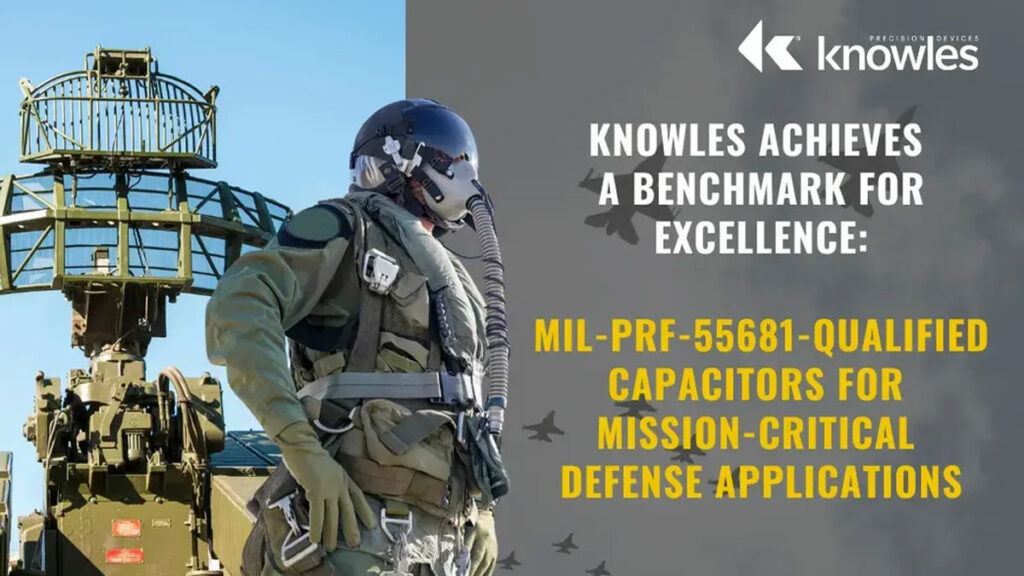Knowles Precision Devices achieves a benchmark for excellence: MIL-PRF-55681-qualified MLCC capacitors for mission-critical defense applications.
When it comes to aerospace and defense applications, every single component plays a role in the success and longevity of the system. Capacitors are vital in flight control systems, radar systems, signal intelligence equipment and more.
They support functions across guidance and control systems, electronic warfare (EW) and power supply units. To best support these development projects, Knowles sought MIL-PRF-55681 qualification for ten capacitor styles we manufacture and test in the United States. With this qualification, you can be assured that you’re using robust and dependable ceramic capacitors in your mission-critical systems.
MIL-PRF-55681, a critical military specification developed by the Defense Logistics Agency (DLA), sets a high bar for designing and developing ceramic capacitors for defense and aerospace projects. Achieving MIL-PRF-55681 qualification indicates a dedication to the highest quality and reliability standards to facilitate easier integration into complex, highly regulated projects.
To achieve qualification under MIL-PRF-55681, manufacturers must adhere to rigorous testing protocols and demonstrate compliance with precise technical requirements. This process involves evaluating factors like temperature stability, reliability under mechanical stress and adherence to tight tolerance levels.
Knowles’ ceramic capacitors will also be listed on the U.S. Department of Defense’s Qualified Products List (QPL). Inclusion on this list demonstrates that our capacitors have undergone comprehensive testing and evaluation to validate their fitness for government projects, which shortens the procurement process. Whether they’re functioning in coupling/decoupling, filtering, timing, snubbing or bypassing, we’ve demonstrated that our capacitors offer the robustness needed to perform consistently under extreme conditions.
